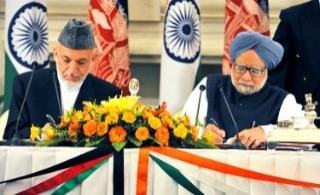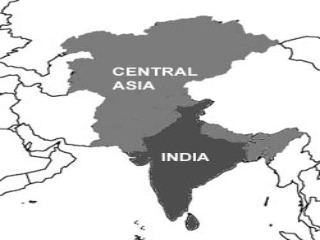Central Asian Qualms About Eurasian Union Mounting
By Stephen Blank (the 05/02/2014 issue of the CACI Analyst)
The current Ukrainian crisis has focused attention on Russia’s drive to construct a Eurasian Economic Union (EEU) and a customs Union as part of it. But Ukraine is by no means the whole story, as reservations if not resistance to the project mount in Central Asia. Both Kazakhstan and Kyrgyzstan have taken steps to resist Russian encroachments and to raise the price of their admission into this union. In January 2014, Kazakhstan's government launched a plan to re-privatize the crucial Kazakh banking sector, partly in order to shield it from the tactics used by Russian banks to buy up equity in distressed banks under EEU guidelines. Kyrgyzstan also displays an increased desire to force Russia to bargain for Kyrgyzstan’s adhesion to the Customs Union and EEU.
Kazakhstan Adopts New Foreign Policy Concept
By Georgiy Voloshin (the 05/02/2014 issue of the CACI Analyst)
On January 29, Kazakhstan's President Nursultan Nazarbayev approved his country’s new foreign policy concept for the period 2014-2020. As the document states, it was developed in line with the “Kazakhstan 2050” strategy made public by President Nazarbayev in December 2012 and further detailed in his recent address to the nation last month. The major goal of this strategic initiative is to ensure Kazakhstan’s entry into the elite club of the world’s 30 most developed countries by the turn of this century.
“CACI Analyst, January 22, 2014”
Afghanistan and India Deepen Strategic Cooperation
By Richard Weitz (the 22/01/2014 issue of the CACI Analyst)
India has made major economic, political, and strategic investments in Afghanistan since the Taliban lost power in 2001. The two countries share an interest in Afghanistan’s postwar reconstruction, pursuing common diplomatic goals, and cooperating against mutual security threats. For years, India has been undertaking programs to bolster Afghanistan’s security capabilities and integrate the country into regional diplomatic and economic structures. Now with the withdrawal of Western combat forces, India is acceding to longstanding Afghan government requests and deepening bilateral security cooperation, despite the risks of provoking a strong and adverse reaction in Islamabad, as well as enlarging their economic collaboration.

India's Challenges in Central Asia
By Stephen Blank (the 08/01/2014 issue of the CACI Analyst)
As India enters 2014 it faces multiple and mounting security challenges in Central Asia, which originate first of all in Afghanistan and second in Iran. The impending U.S. and NATO withdrawal leaves India as the most exposed foreign power supporting Afghanistan, which few believe can survive without continuing large-scale allied support and at least some military presence. The U.S. withdrawal, which might be accelerated if no Bilateral Security Agreement (BSA) is signed between Washington and Kabul, would expose India to the risks of intensified fighting in Afghanistan. Pakistan’s belief that India’s presence there represents a threat also exposes India to further terrorist onslaughts, particularly by forces trained and supported by Pakistani military and intelligence agencies.



